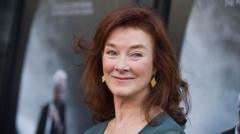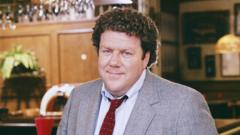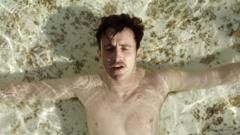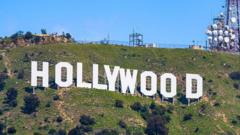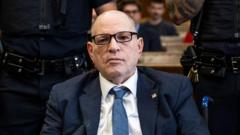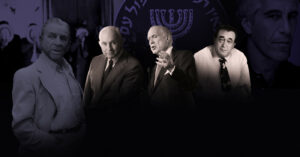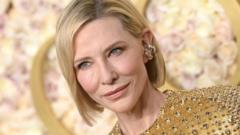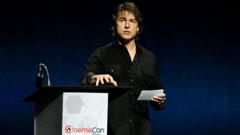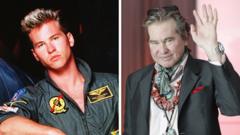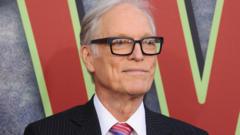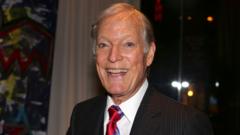Chamberlain's career, marked by heartthrob roles and a complex relationship with his sexuality, made him a household name and a significant figure in television history.
**Richard Chamberlain: A Legendary Star of the Mini-Series Era**
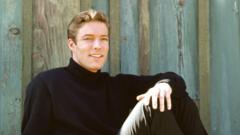
**Richard Chamberlain: A Legendary Star of the Mini-Series Era**
Richard Chamberlain, the iconic actor known for his roles in “Dr. Kildare,” “Shogun,” and “The Thorn Birds,” has passed away at 90.
Richard Chamberlain, celebrated for his role as the handsome Dr. Kildare in the 1960s, died today at the age of 90. His striking good looks and on-screen charm captivated audiences, leading to an enduring fan base and a series of notable roles throughout his life. Chamberlain became particularly synonymous with the TV mini-series format in the 1980s, delivering memorable performances in productions like “Shogun,” where he portrayed a western captive navigating feudal Japan, and “The Thorn Birds,” as a conflicted priest torn between his faith and love.
Born George Richard Chamberlain on March 31, 1934, in Beverly Hills, California, his upbringing was challenging due to family circumstances, which he described in later years as shaping his introverted persona. Although his career began after military service in the Korean War, his breakthrough came with “Dr. Kildare,” a show that remarkably raised topics like drug addiction, a first for television at that time, leading to a wave of adoration from fans—he received an overwhelming 12,000 letters weekly from them.
Despite being cast as the leading man in various productions, Chamberlain struggled to shed the “Kildare” image and sought refuge in stage performances in the UK, where he reinvented himself as a more serious actor. Notable performances included playing Hamlet and appearing alongside Hollywood legends like Katharine Hepburn.
Chamberlain experienced a career revival in 1980 with the airing of “Shogun,” which drew nearly 30 million viewers, and followed it up with the success of “The Thorn Birds” which captivated an audience of 60% of viewers at the time, won him numerous accolades, including Golden Globes, and resulted in multiple Emmy nominations.
He later revealed his sexuality in a memoir in 2003, shedding light on the challenges he faced in a homophobic culture, while maintaining a long-term relationship with fellow actor Martin Rabbett. Even in his later years, as societal attitudes began to shift, he remained reflective about his past, expressing a desire for greater freedom in his earlier life.
Though his later career featured various projects in television and theater, including roles in popular series like “Desperate Housewives,” Chamberlain will be remembered as one of the significant television icons of his time, a masterful performer capable of engaging audiences with his nuanced portrayals on the small screen. Even with the evolution of the industry, few contenders could rival the enduring impact of Richard Chamberlain’s television legacy.
Born George Richard Chamberlain on March 31, 1934, in Beverly Hills, California, his upbringing was challenging due to family circumstances, which he described in later years as shaping his introverted persona. Although his career began after military service in the Korean War, his breakthrough came with “Dr. Kildare,” a show that remarkably raised topics like drug addiction, a first for television at that time, leading to a wave of adoration from fans—he received an overwhelming 12,000 letters weekly from them.
Despite being cast as the leading man in various productions, Chamberlain struggled to shed the “Kildare” image and sought refuge in stage performances in the UK, where he reinvented himself as a more serious actor. Notable performances included playing Hamlet and appearing alongside Hollywood legends like Katharine Hepburn.
Chamberlain experienced a career revival in 1980 with the airing of “Shogun,” which drew nearly 30 million viewers, and followed it up with the success of “The Thorn Birds” which captivated an audience of 60% of viewers at the time, won him numerous accolades, including Golden Globes, and resulted in multiple Emmy nominations.
He later revealed his sexuality in a memoir in 2003, shedding light on the challenges he faced in a homophobic culture, while maintaining a long-term relationship with fellow actor Martin Rabbett. Even in his later years, as societal attitudes began to shift, he remained reflective about his past, expressing a desire for greater freedom in his earlier life.
Though his later career featured various projects in television and theater, including roles in popular series like “Desperate Housewives,” Chamberlain will be remembered as one of the significant television icons of his time, a masterful performer capable of engaging audiences with his nuanced portrayals on the small screen. Even with the evolution of the industry, few contenders could rival the enduring impact of Richard Chamberlain’s television legacy.


